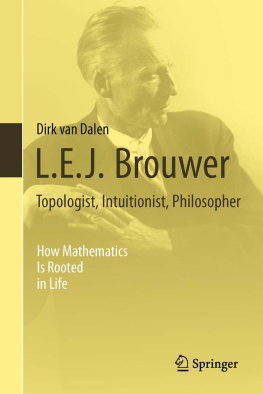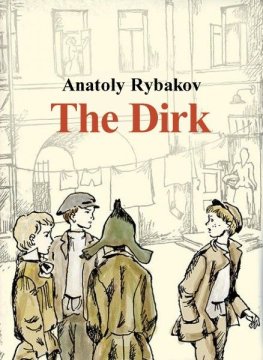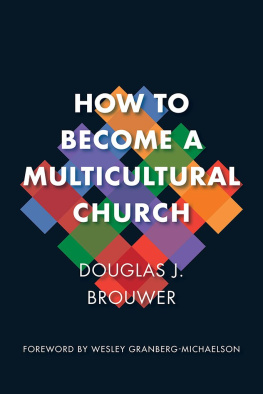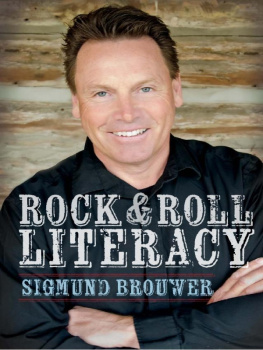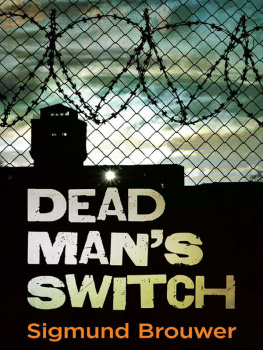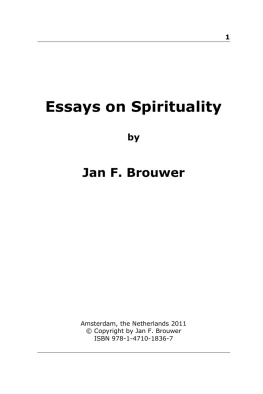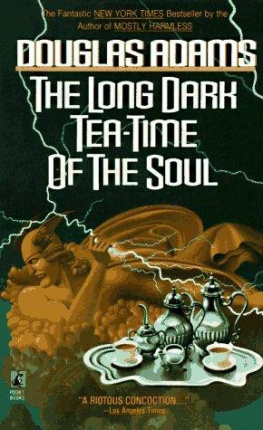Dirk van Dalen L.E.J. Brouwer Topologist, Intuitionist, Philosopher 2013 How Mathematics Is Rooted in Life 10.1007/978-1-4471-4616-2_1 Springer-Verlag London 2013
1. Child and Student
It was into an optimistic country that Luitzen Egbertus Jan Brouwer was borna country with a burgeoning science, literature, and social awareness. After having been one of the backwaters of Europe, the Netherlands was finding its way back into the mainstream of culture and commerce. Since the golden age of Huygens and Stevin, science had been more a playground for cautious imitators than for bold researchers. At the turn of the century all that was changing. Physics was flourishingLorentz, Kamerlingh Onnes, Van der Waals and Zeeman were all putting the Netherlands in the forefront of modern physics, Van t Hoff was doing so in chemistry, Hugo de Vries in biology, and Kapteyn in astronomy. The fact that Holland counted a number of its leading scientists among the early recipients of the Nobel prize may be sufficient evidence of the quality of the research in the sciences in the Netherlands.
Mathematics was slower to pick up the new lan. The best-known Dutch mathematician after Christian Huygens was Thomas Jan Stieltjes, who did not find recognition in Holland and who practised his mathematics in Toulouse. The mathematicians of the period were competent, but not on a par with their colleagues in Germany, France and Britain. Neither was their choice of subject very daring: the Dutch worked in the more settled parts of mathematics, from analytic-descriptive geometry to number theory and analysis. At the same time literature was freeing itself from the strait-jacket of nineteenth-century conventions, and a wave of new authors had already transformed the literary landscape. The explicit aim of the leading spirits was to push Holland high up into the stream of the nations. Almost inevitably the new literary trend in Holland was closely bound up with developments in the social movements. Many of the leading poets and authors were involved in the promotion of a better social climate. A number of them played a significant role in the socialist movement, which eventually led to the birth of the Social Democratic Party and, subsequently, the Communist Party.
The political scene at the turn of the century was mainly determined by the Liberals , who were the rightful heirs of the dominant movement of the nineteenth century, the Protestants (who were traditionally called the Christians), the Catholics , and the late-comers, the Social Democrats . Traditionally the Liberals made up the higher strata of society; the Protestants, Catholics and Socialists were instrumental in the emancipation of their respective sections of the population. History had equipped their respective parties with powerful charismatic leaders.
Generally speaking, Dutch society was experiencing a powerful upward thrust in its social structure. Progress had become the password of the day, and in this general movement there was a small but influential group that formed the backbone of the nations new spirit: the schoolmasters. In the past they had been the favourite butt of pamphleteers and wits, for example, Multatuli, the reformist author, created the immortal schoolmaster Pennewip , a caricature of the fossils that used to educate the nations youth. At the turn of the century, however, a whole new generation of schoolmasters had come to populate the schoolrooms of the country. The new teachers were, for the greater part, idealistic promoters of a better future, equipped with an unshakable belief in the beneficial influence of knowledge. The nation was blessed at the time with a fine body of teachers and an effective egalitarian educational system. A side effect of the strong admiration of schoolmasters for learning was that they often sent their own children to institutions of higher education; a surprising percentage of the scientific Dutch community actually came from schoolmasters families.
Luitzen Egbertus Jan ( Bertus , as he was called) Brouwer, was one of these schoolmasters sons that was to put his stamp on Dutch society and culture; he was born on the 27th of February 1881 at Overschie, son of Hendrika Poutsma (15 September 1852 Follega3 May 1927 Utrecht) and Egbertus Luitzens Brouwer (17 April 1854 Bakkeveen3 May 1947 Blaricum), schoolmaster at a primary school at Overschie. Hendrika was of Friesian stock; her earliest registered forebear Tammerus Gerhardi (15791644) was a minister of the Dutch Reformed Church at Joure and IJlst in Friesland. The Poutsma family tree is adorned with a good number of parsons and schoolmasters, and towards the end of the nineteenth century there is a definite tendency to rise to the higher strata of the teaching profession. Two of Brouwers uncles became teachers at the Barlaeus gymnasium at Amsterdam, the finest school of the city. One of them, Hendrik Poutsma taught English literature and language, and wrote a classic textbook; he was awarded a honorary doctorate by the University of Amsterdam. The other uncle, Albertus Poutsma, taught Greek and Latin at the same school and eventually became its rector.
The forebears of Bertus were all Friesian. His father was born at Bakkeveen in Friesland, and he in turn was the son of Luitzen Luitzens Brouwer (born 20 April 1813 in Duurswoude), who likewise was a schoolmaster ( onderwijzer der jeugd ). The latter was the son of another Luitzen Luitzens Brouwer (born in Duurswoude 1756 or 1757), who was a farmer and shepherd.
The Friesians were (and still are) known for their reliability, and they were welcome additions to many a profession in the western part of the country, the part that traditionally is known as Holland. The position of the Friesians in the Netherlands is somewhat comparable to that of the Scots in England. In view of the limited opportunities in Friesland, the more adventurous among them moved to Holland and settled there. For example, in the first half of this century the Amsterdam police force recruited a good number of its members from Friesland.
Bertuss parents were married on 8 April 1880. They immediately moved from Beetsterzwaag (Friesland) to Overschie, a small town which nowadays is part of Rotterdam, where their first child, Bertus, was born. The story goes that grandfather Brouwer came to see the baby.
Bertuss parents were strict and honest people and none of the later extravagances of the sons seem to have visited them. Like all hardworking, sober Dutchmen they led a simple life in reasonable comfort, but without wasting money. Bertuss mother had indeed elevated saving to an art.
The most detailed information about the child and boy Bertus was provided by himself. At the age of sixteen he had to write a short auto-biography as part of the initiation rites of the Amsterdam Student Corporation or Fraternity , in Dutch the Amsterdamse Studenten Corps . The following lines are from this biographical sketch (September 1897):

